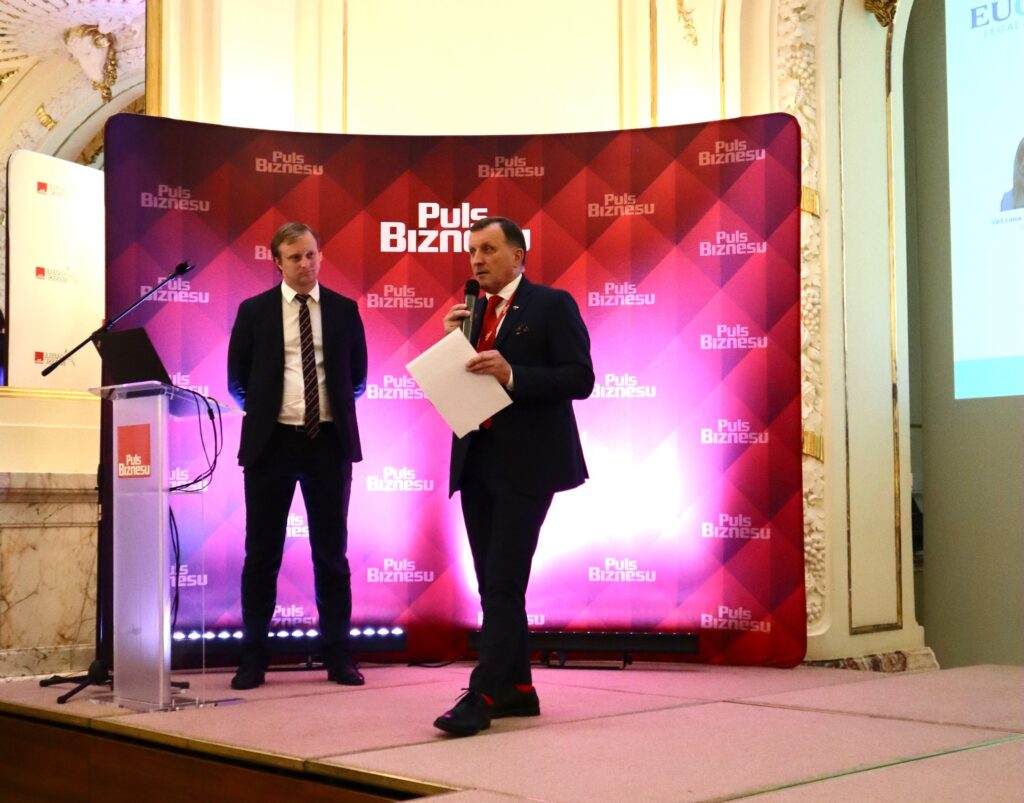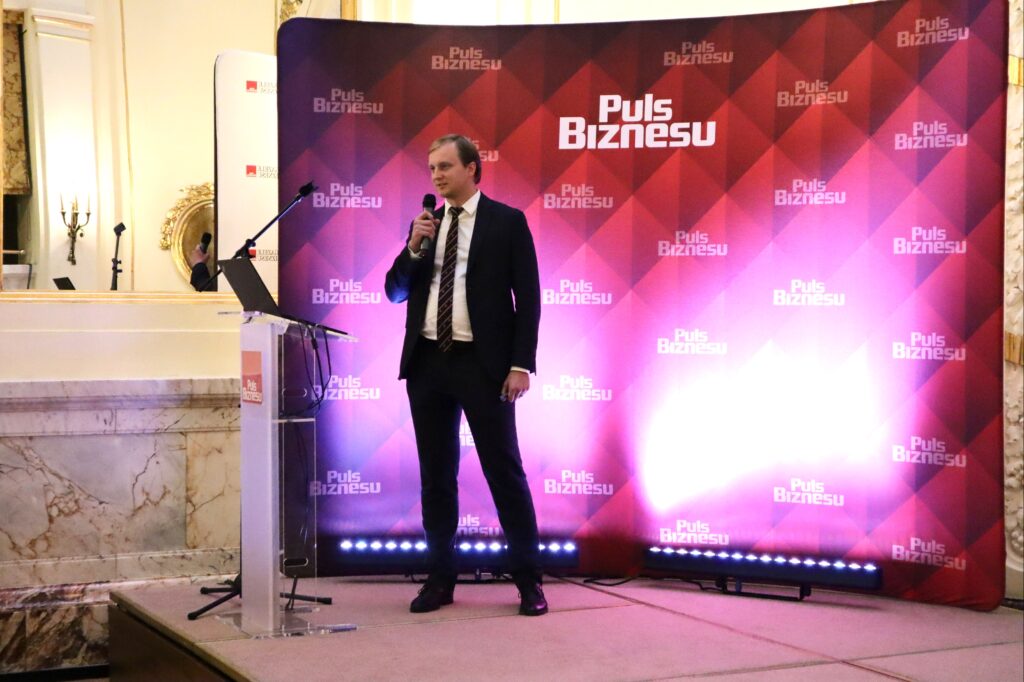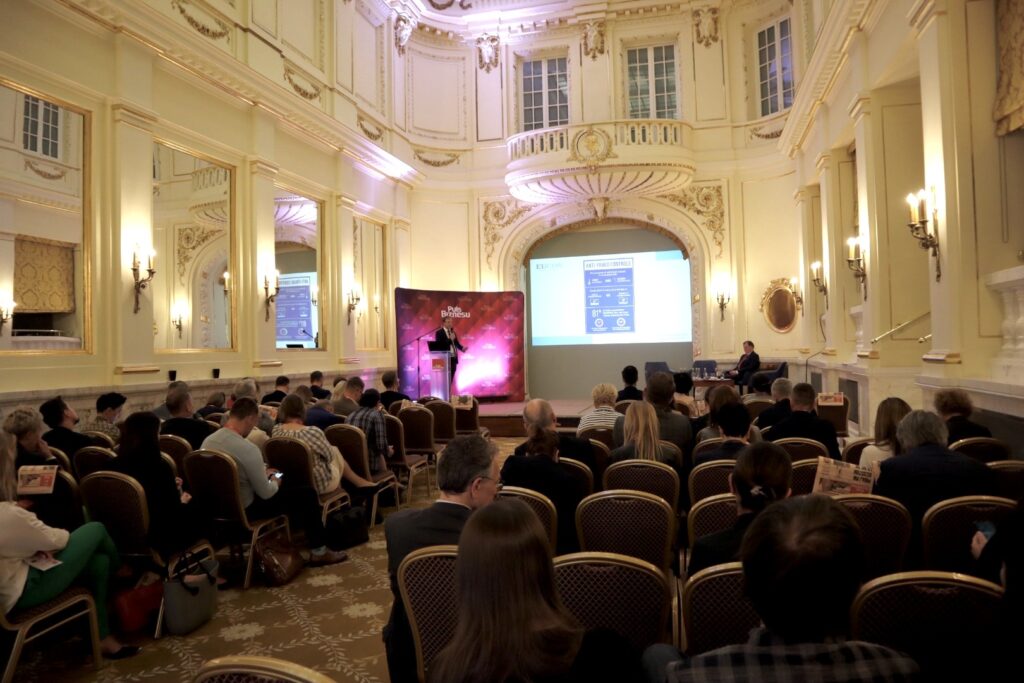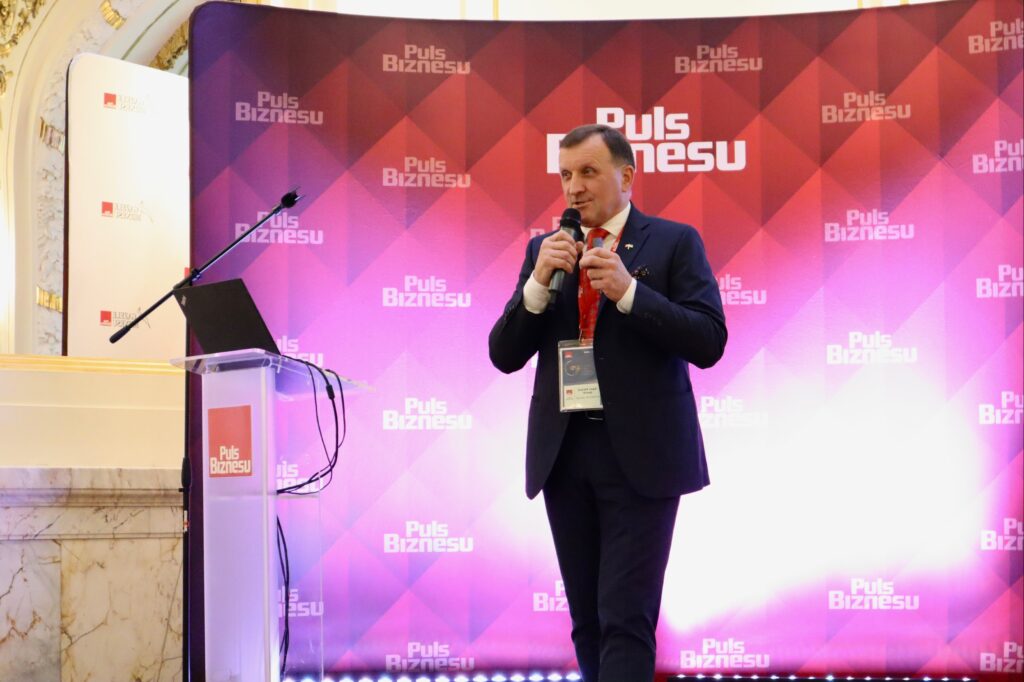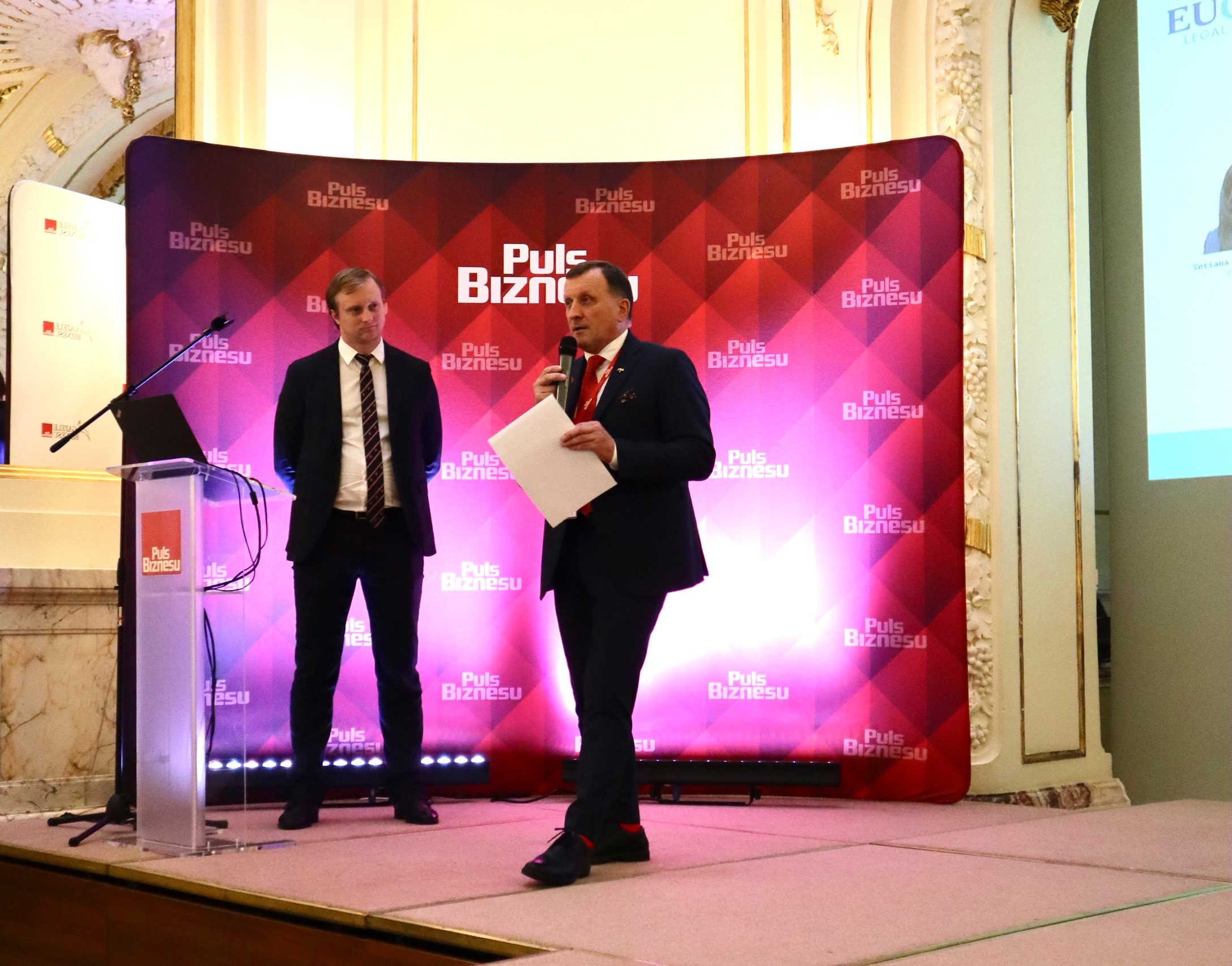
On September 22-23, the XV Forum Dyrektorów Działów Prawnych (XV Forum of Directors of Legal Departments) by Puls Biznesu took place in Warsaw. The event is devoted to the discussion of challenges in the context of crisis phenomena, such as example, the pandemic and the war in Ukraine, for heads of legal departments and top managers in the legal business, as well as the search for effective methods and forms of crisis management to overcome current problems.
During the forum’s second day, attorney-at-law, managing partner of EUCON, Yaroslav Romanchuk, and attorney-at-law, head of the EUCON office in Warsaw, Andrii Romanchuk, presented a speech on the topic “Managing fraud risks in the corporate sector: prevention and detection.”
Having outlined the practical activities of EUCON, the speakers singled out four main blocks of the speech, which allow them to focus attention on the most important aspects of the topic, namely: 1) corporate fraud and its causes; 2) possible types of fraud; 3) prevention, detection, and investigation; 4) practical cases.
In the context of fraud risk management in the corporate sector, experts relied on the data of the report “Occupational Fraud 2022: A Report to the nations” from the Association of Certified Fraud Examiners (ACFE) – the largest organization for combating fraud and providing education in the field of anti-fraud. Yes, Mr. Yaroslav and Mr. Andrii provided statistics on the investigated practical cases, losses due to internal frauds by total value and by region, misappropriation of assets and internal corruption, and cases of fraud involving cryptocurrency.
The speakers also analyzed the sides of victims of domestic fraud and criminals. Thus, representatives of the real estate, wholesale trade, transportation and logistics, construction, and communal services industries were mostly affected by corporate fraud, and 23% of the total number of criminals are company owners and managers, but only 6% of criminals (from the total number) are punished.
Yaroslav Romanchuk and Andrii Romanchuk noted that in the issue of anti-fraud control, the presence of anti-fraud controls is decisive, which is associated with smaller losses from fraud and faster detection of fraud, that is, it depends on the use of preventive measures to modernize the system of protection against corporate crimes in companies
Speakers noted that professional fraud includes: misappropriation of assets, internal corruption, and financial reporting fraud. In addition, statistics were given on the frequency of each of the mentioned types of crimes and the distribution of criminals by gender.
Having supported the statement with statistics regarding the effectiveness of the applied methods, Mr. Yaroslav and Mr. Andrii named 4 main tools for detecting corporate crimes: external audit, automated monitoring of transactions/data, consulting, and management review.
According to the data provided by the experts, crimes are most often reported by customers, employees, competitors, and anonymous people. Lawyers argue that one of the factors that distinguish fraud from other employee-related crimes is that fraud involves: personal gain by the offender, intentional misrepresentation, bad faith, and collusion with someone outside the organization.
Frauds can also be classified by 1) employees (internal); 2) by customers, contractors, and third parties (external); 3) for the organization; 4) to the detriment of the organization. For clarity, the speakers presented the triangle of fraud, which consists of opportunity, pressure, and rationalization, and also emphasized that fraud can be committed by employees, a third party, or an employee and a third party in collusion. The top 5 types of fraud include bribery and corruption, asset misappropriation, procurement fraud, HR fraud, and cybercrime.
The experts drew the attention of the participants to the fact that the most effective ways to detect fraud are indicators, analytical procedures, fraud risk assessment, and the work of the internal auditor/SB. Investigations are conducted to return the stolen property, punish the guilty, protect employees, and establish an internal control system.
At the end of the speech, Mr. Yaroslav and Mr. Andrii named and analyzed various factors of fraud.
